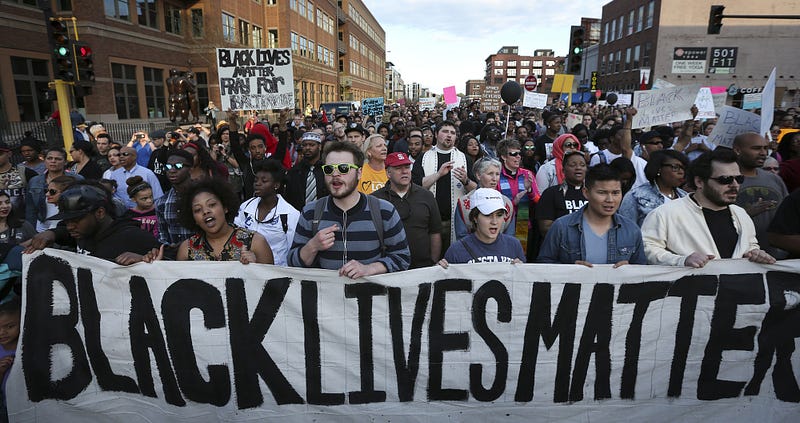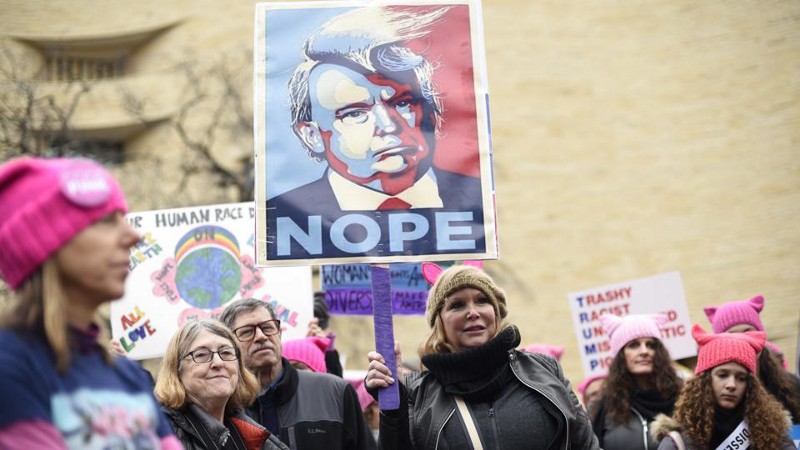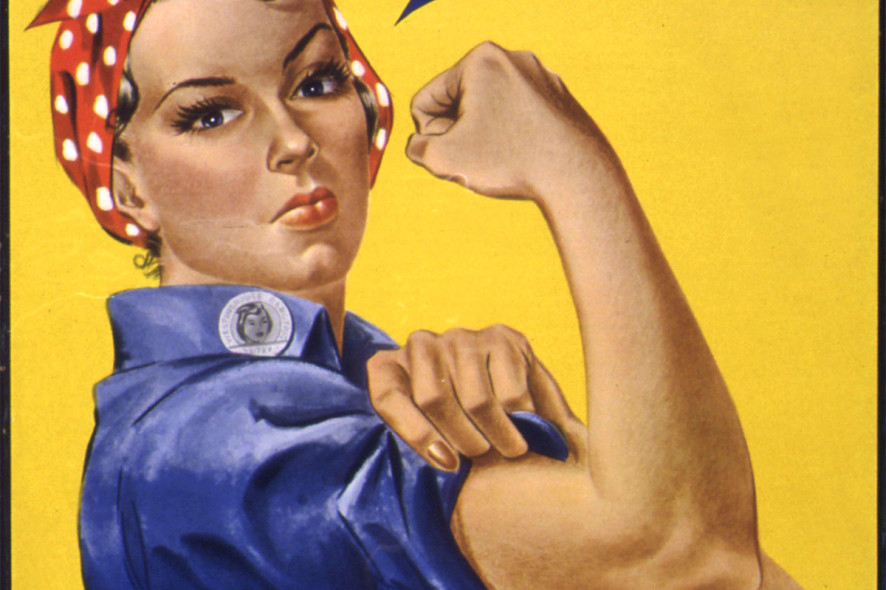This last weekend of protests in the US and elsewhere has been a success story in itself. Can you imagine the horror of a Trump inauguration uncontested? It would have been like a funeral with a disrespectful long-lost relative who keeps on insulting the deceased, while the aggrieved (i.e. Sanders and the Democratic Left) are forced to remain silent so as not to disturb the ceremony even more. People on the street, from bandana-wearing bin destroyers to baby-carrying families, shared a common goal: crashing the party, making their opposition heard, and showing the world that the new President of the United States is not an accurate reflection of American society.
One of the common questions, however, coming from both sympathetic and contrarian groups, was the following: why is it that these marches are “for women”, and not just “against Trump”; or for other groups also attacked by his campaign, such as Latinos? There are two ways of answering this question. The first and easy one is to say that, since Trump is not really in power yet, only women can, for the moment, embody a legitimate response based around the “grab’em by the pussy incident”, and other similar comments. Consequently, we’d have to wait to see how his presidency develops, whether he works towards building the wall with Mexico, deporting Muslims en masse, and other promises, in order to call for similar protests on behalf of those groups. This logic, implying a division of ‘issues’ between groups (rights for the LGBT movement/debt cancellation for students/labour protection for industrial workers) leads to dissolving the strenght of multitudes into unconnected pipes leading to nowhere.
Why is it, then, so tempting to make this about women and women alone? Probably, because it is satisfaying to see the ‘snowflake’ response from the alt-Right. Take a look at the Facebook comments on the news reports and private posts about the Women’s marches. I’m sure it’ll only take two seconds to spot some commentaries such as: “Ship all these bra burning libs out to Mosul and see who the real bigots are !!”, “Go make me a sandwich!”, “What a load of brain dead lefties think they can influence the United States democratic system ?”, “In one day, Trump got more fat women out walking than Michelle Obama did in 8 years” (these are real ones I just dug up, all of them with several “likes”). This brief satisfaction of standing against abuse, nonetheless, is counter-productive as it corresponds with the narrative of Trump’s followers.

How is single-issue “identity politics” (i.e. basing political action around belonging to a certain group) detrimental in opposing Trump? Simply, there is a specific argument this group of “deplorables” will be quick to make: these women are frustrated because “their candidate” lost the election, so they are questioning the US democratic system as whole in the name of “Shrillary”. They’ll wonder, “can you imagine if Hilary had won? Would we have had the same sort of global solidarity if we had led our own “March for Trump (or for America, or whatever they think they stand for)”? The answer is, of course, no. But they will still have legitimacy to make that claim, equalising the white nationalist cause with the women’s cause, on behalf of liberal pluralism.
This is why a limited identitarian approach, based on the idea of women opposing Trump, “because they’re women” (whether they are Sheryl Sandberg or Angela Davis) is the wrong way forward for developing a true opposition. As long as it is based on defending “toleration” or “respect” for victims, this movement will play in the hands of the Trumpian narrative by which he is defending another “oppressed minority”, the white working class forgotten by globalisation. Why should not we also tolerate Nazis, the KKK, pro-segregation people, etc.? They are also identities, minority opinions overlooked and ridiculed by the nation’s progressive media. The only way to break from this impasse is to understand that those women on the street today, like those in Black Lives Matter, are not speaking for their ‘interest’ group: they speak for all of us.

This is because the current economic system is not just an enemy of the white working class. While the coverage of the issues affecting these sectors of the population (endemic unemployment, alcoholism, depression, etc.) had been overlooked by most candidates and pundits (except, of course, Trump and Sanders), the weeks after the election saw an inverse shift on New York Times and similar outlets to reflect the concerns of the white working class. Suddenly, their lives were the only ones that “mattered”. But as a Black Lives Matter activist would be more than happy to clarify, more often than not, it is black lives (and deaths) that are forgotten by media and political institutions! Fighting for attention from liberal media quarters is certainly not another way forward to be pursued: one cannot measure suffering against suffering to see which is the worthier cause.
Instead, it should be clear that the current system (pre and post-Trump) does not deliver to any of these groups in particular, and is actually holding them all down. Poor students, illegal migrants, pensioners who’ve lost their savings: aren’t they all equally cut off from basic healthcare at the point of use, universal access to higher education, modern transport infrastructure and job security? Women, overrepresented in Federal jobs, and conducting many of the unpaid or underpaid tasks of “emotional labour” (child rearing, teaching, nursing, etc.) will definitely suffer more than other groups under a government promising more cuts to social services (not to mention the constant verbal abuse from Trump and his cronies).
This explains why women would be a leading organising group, but it doesn’t mean it is only their issues that should be regarded for a growing opposition. Marching women and their allies, contrary to what their detractors claim, should be seen as representing the future coming-together of groups, the potential universality of those threatened not just by Trump’s vulgarity, but by his vision of the world, his politics (in a wide sense).

“Particularlist” thinking has so far shaped the Democratic representatives’ attitude towards Trump’s nominees for top offices, who have been attacked on their lack of “credentials” and “professionalism” for their assigned policy areas. Remove the tit-for-tat exchanges on Congress, however, and the substance of economic and political thinking is the same: market knows best. If there are people suffering in America is because we still need a little financial inclusion and employment workshops here and there (Democrats); or because Obama, with his pro-State policies, blocked businesses from growing even more (Republicans). This is why activists, party sympathisers, churches, any organisation and possible ally against Trump must keep pushing and realise the only way forward is to initiate a process for a coherent political programme that can unite everybody around a different politics.
Enemies of Trump in America unite, you have nothing to lose but an orange president!





